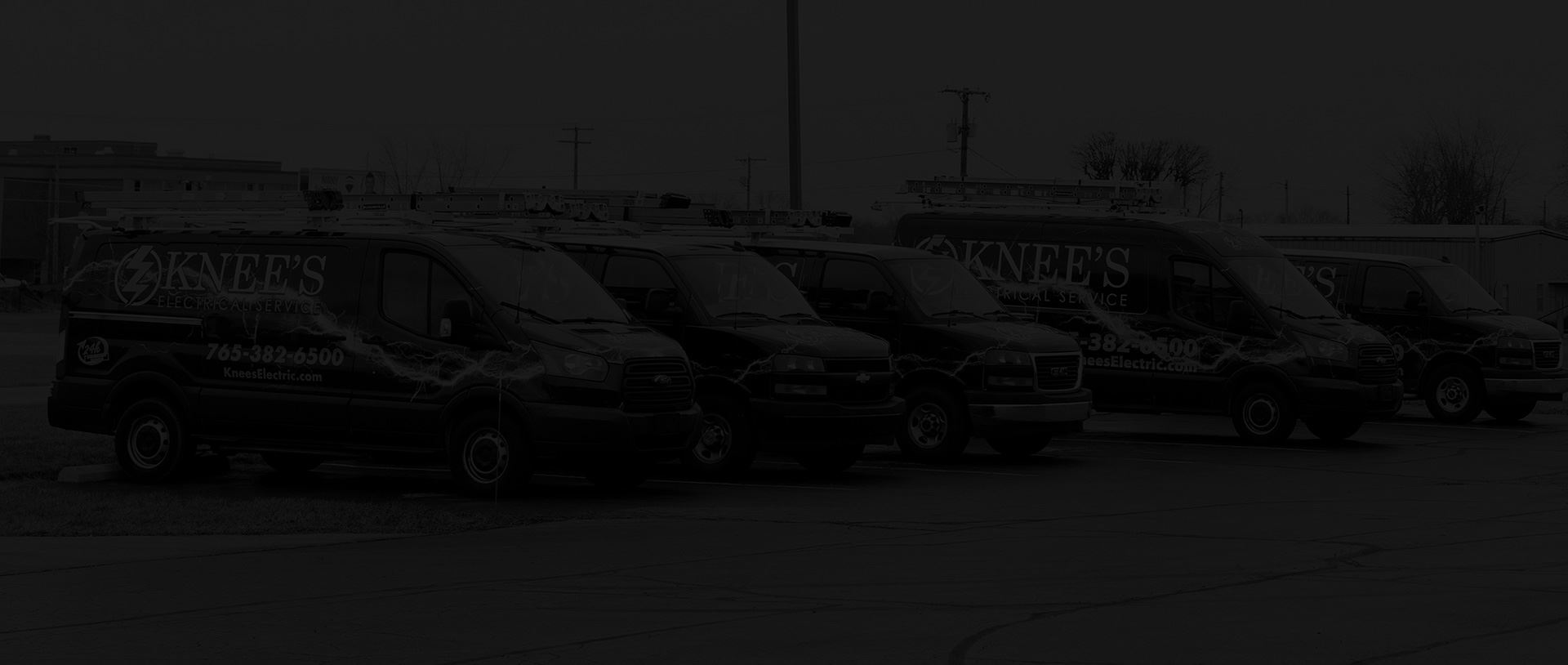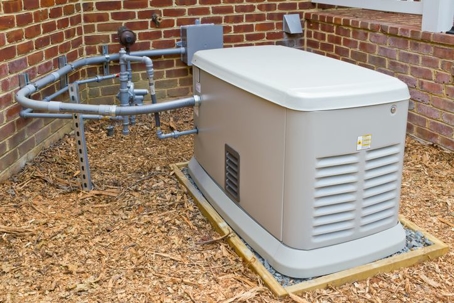No one wants to be stuck without power. At best, power outages are an inconvenience, and at worst, it can spell spoiled food, frozen pipes, unusable medical equipment, and more. If you live in an area where power outages happen occasionally, it might be time to invest in a generator. The makes and models of generators available now are almost endless, and choosing the right size generator can be daunting. Our expert generator installers at Knee’s Electrical Service are here to help narrow your choices and keep you more informed, so you can make the right decision for your home.
How Are Generators Sized?
Generators are not classified by physical size but by the amount of electricity created – with the energy being measured in watts (W) or kilowatts (kW). With this in mind, you must first determine how many watts the essential appliances in your home use before you choose a generator.
How to Size a Home Generator
No two homes are the same, which means there is not a blanket size guide that will suit everyone. Take the following steps to help you evaluate what size generator your home will need.
- Create a list of electronics and appliances that will require electricity to determine the consumption wattage needed to power your property
- Establish what starting wattage is required
- Calculate these wattages together to evaluate the overall power needed
- Pick the type of generator that fits the needs of your home
Create a List of Appliances & Electronics
The first step is determining if you want to only power necessary lights and systems, or if you would prefer more items powered.
- For example, if you want to keep power to 4 lamps, your refrigerator/freezer, your computer, phone chargers, and sump pump, you are looking at a needed wattage of approximately 2,900 watts.
- However, when you start to add other electronics like a microwave, TV, washer/dryer, and heating and cooling systems, your wattage requirements shoot up drastically.
Determine the Starting Wattage
Once you have found the needed wattage to run your home, you have one more consideration to keep in mind before picking out the generator of your dreams, and that is starting wattage. Starting wattage refers to how much electricity is needed to start up an appliance. This is not a consistent power demand but does cause a spike in needed wattage by up to 2 to 3 times initially.
Evaluate the Types of Generators Available
Now that you have a list of the types of devices you want to be powered, their consumption wattage, and starting wattage, you are ready to decide on a generator. The two main types of generators are portable and standby generators.
- While portable systems can work well for small properties in a pinch, they will not turn on automatically and require fueling, and manually plugging in your systems.
- Standby units will begin providing you power the moment there’s an outage, but come in a wide range of energy outputs.
Helping You Find the Perfect Sized Generator for Your Home
Our professional electricians at Knee’s Electrical Service have been installing generators in the greater Wabash County area for years, and we have dozens of models to choose from. No matter your electrical requirements, our experienced team will listen to your needs and recommend a system that fits your budget and your requests. We even happily offer generator installation services to commercial properties. Let our reliable technicians quickly and thoughtfully provide power to your home.
To learn more about how Knee’s Electrical Service can serve you, call our team today at (765) 201-7220 or contact us online.

